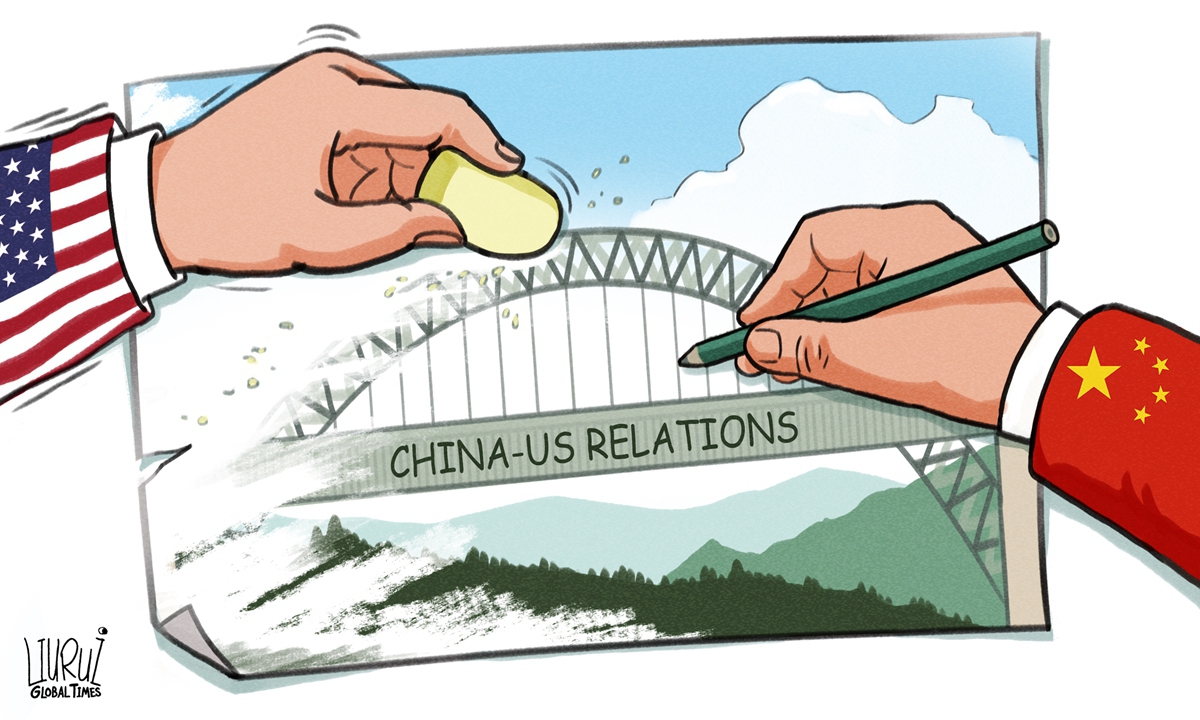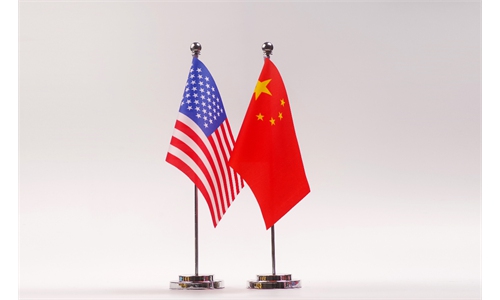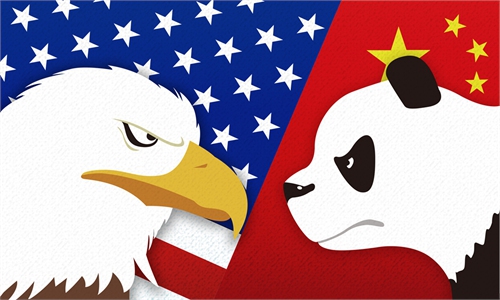
China-US relationship. Illustration: Liu Rui/GT
The ongoing tensions between China and the US continue to strain bilateral relations, making it difficult to maintain an optimistic view of US policy toward China. However, since last year, there has been a noticeable increase in both high-level communications and grassroots exchanges between the two countries, raising expectations for managing and stabilizing China-US relations. In August, US National Security Advisor Jake Sullivan visited China, and some scholars likened the resulting interactions to "Kissinger-style" engagement. To understand the current phase of these interactions, it's essential to have a comprehensive understanding of US policy toward China and the present state of bilateral relations.
First, the "fluidity" characteristic of China-US relations remains unchanged. Are China and the US partners or rivals? Each side offers starkly different answers: China believes the relationship should be cooperative, while the US characterizes it as competitive. This clear cognitive dissonance exacerbates the current chaos and uncertainty in China-US relations. The US has directed many issues in the bilateral relationship toward a confrontational path, making it difficult to sustain cooperation in areas that could have been collaborative.
Objectively, there are still extensive and deep economic and other connections between China and the US, and many global challenges cannot be addressed without the cooperation of both countries. Therefore, any imprudent actions by the US toward China will ultimately harm its own interests. The current reality is that while the US no longer possesses the unilateral ability to dictate the nature of China-US relations, China's influence is comparatively on the rise.
Second, in recent years, the extremism and destructiveness of US policy toward China have intensified. The US has been actively enhancing its alliance system in the Asia-Pacific and promoting a "NATOization" approach. There is a growing drive to "decouple" and sever supply chains in the technology sector and related industries, with the goal of weakening China's economic growth momentum and potential.
However, there has always been a strong opposition to Washington's extremely destructive words and deeds toward China in American society. The political, social and cultural characteristics in the US enable its society to play a certain role in hedging and restraining the government's behavior. In this sense, ensuring that China and the US maintain pragmatic communication and promote the stability of bilateral relations cannot be separated from deepening and expanding exchanges at the social level of the two countries.
Third, it is difficult for the US to change its view of China-US cooperation from the perspective of "great power competition." The US' main purpose of seeking engagement and cooperation with China is to overcome its own problems, and its ultimate goal is to enhance the absolute dominance of the US, with its typical zero-sum logic.
Fourth, the US will not stop the trick of "passing the buck to China" for the domestic and foreign difficulties. At present, the domestic political split, racial conflicts and the social gap between the rich and the poor are still intensifying in the US. Coupled with the rapid growth of China's comprehensive strength and the improvement of international influence, American politicians have become anxious, and hence have become more obsessed with the tricks of "blaming" China. This practice seriously poisons the atmosphere of China-US relations.
One of the main contradictions in the US at this stage is the gap between ruling elites and the public. American society does not have the same prejudice as some US politicians have against China. The anti-China policy advocated by these politicians is increasingly deviating from the real concerns and demands of the American people.
China generally maintains an open attitude to the US seeking interaction and communication.
However, the US really hopes to achieve a stable and sound relationship with China, it needs to set the starting point and destination on the "Kissinger-style" engagement with China.
The author is professor at the China Foreign Affairs University. opinion@globaltimes.com.cn



